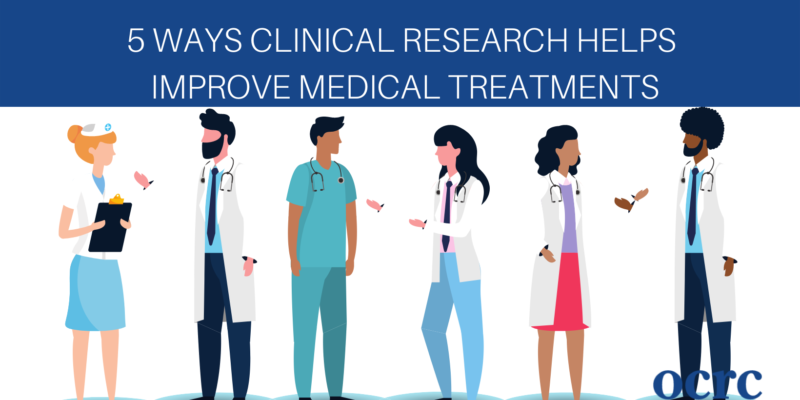
The clinical research data gathered today will help pave the way for an improved understanding of disease and illness in the future. Both Researchers and manufacturers are continually making progress on new medications that will one day be prescribed to patients. Through scientific advances and trial and error, researchers are uncovering answers to complex health problems that millions of Americans face. Here are just a few ways that clinical research helps improve the latest medical treatments:
Researchers go to great lengths to understand how medications will impact segments of the greater population. Because no two people are alike – we all have unique DNA, environmental stresses and lifestyles – it is important that clinical trial data is representative and encompassing of all of these factors.
For instance, according to the National Institute of Health, women are more likely to struggle with depression, osteoarthritis, and kidney disease. With these genetic predispositions in mind, the data researchers obtain about the effectiveness of associated treatments or therapies in women is particularly important.
When testing a new medication or therapy, researchers look into the medication’s efficacy, potency, dosage, side effects and psychological impact on study volunteers. Healthy volunteers are also imperative for researchers to fully understand the safety and effectiveness of new treatments that may one day potentially prevent, treat or cure diseases.
Clinical trials are the testing grounds for future therapies and medications that will help improve the management of serious health conditions. The data gathered in clinical trials also help researchers better understand the effects of disease and illness on the body, and which medications offer the best treatment.
Many of today’s medical advances are the direct result of clinical trials. Researcher’s findings can additionally help uncover cures for illnesses, enabling people to live longer and healthier lives.
Many clinical studies address the ways illness progressively impacts the body. This information may help researchers identify superior intervention methods, which can contribute to an increased patient life expectancy and better quality of life.
Doctors also provide guidance and care, free-of-charge, and patients provide doctors with important data. For individuals who meet the specific study criteria, this relationship can be particularly beneficial.
Many clinical trial participants find it gratifying to help facilitate medical advancements that will improve lives, and possibly saves lives, down the road. According to National Institutes of Health (NIH), “Participants with an illness or disease also participate to help others, but also to possibly receive the newest treatment and to have the additional care and attention from the clinical trial staff.”
Life can be tough for individuals with chronic illnesses. The hope for a cure or a new therapy never fades and the more people who sign up for clinical trials, the better researcher’s odds are for finding new treatments.
Read more about cutting-edge medical innovations in our related blog, “The Latest Clinical Trial Innovations & Technologies.”
